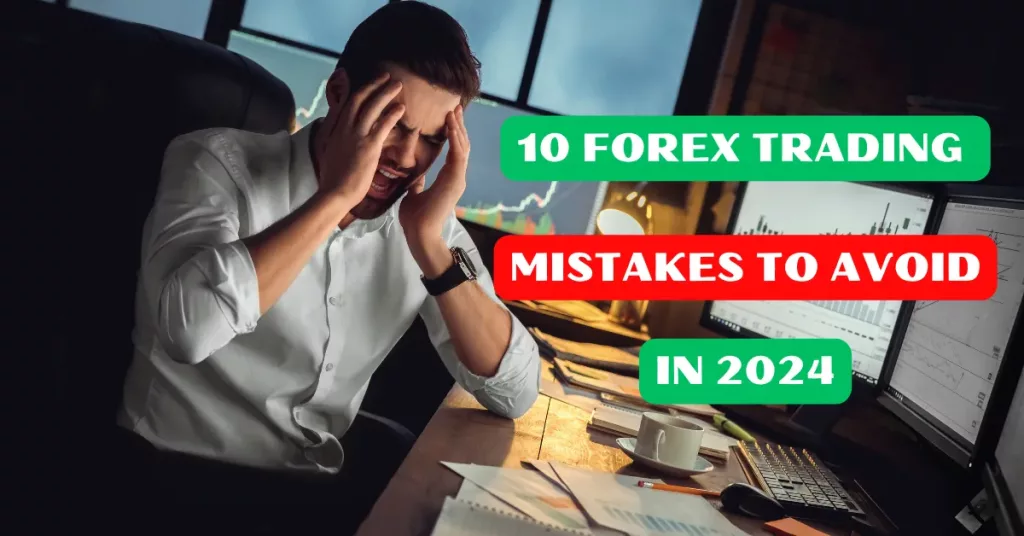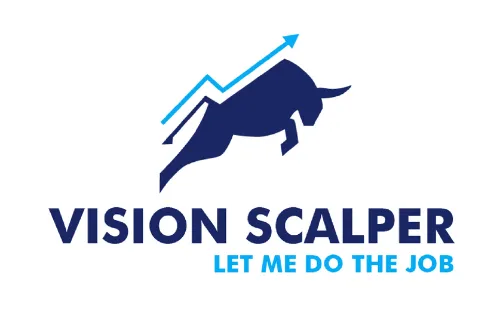10 Forex Trading Mistakes to Avoid in 2024

As an everyday trader beginning in forex trading, you may find it both energizing yet challenging. The charm of potential tall returns is outright, but so are the dangers included. Numerous new traders fall into these pitfalls that can be maintained with a strategic distance from the right approach.
In this blog, we’ll jump into 10 Forex trading mistakes made by everyday traders. And share important tips to control and clear them. Let’s make your trading travel smoother and more successful!
Common Forex Trading Mistakes
Lack of a Trading Plan
Mistake: Numerous unused dealers hop into the forex advertise without a clear arrangement. This need for heading can lead to imprudent choices and critical losses.
Solution: Sometime recently plunging into trading, it’s significant to outline a strong strategy. Think of it like a guide for your travel in the forex market.
Your plan ought to outline:
- What do you need to achieve?
- How much hazard are you comfortable with your chance tolerance?
- The techniques you lean toward to implement.
- Clear rules for when you’ll enter and exit trades.
This roadmap isn’t just a guideline—it’s your anchor in the stormy seas of trading. Sticking to it helps you stay disciplined and keeps emotional impulses at bay.
Overleveraging
Mistake: When you use leverage in forex trading, it demonstrates that you’re controlling a bigger sum of cash than what you have. This can boost your benefits when things go well, but it also implies that misfortunes can hit harder.
Solution: To explore this, start small. Start with lower-leverage proportions. As you get more comfortable and certain in your trading aptitudes, you can slowly increase your leverage. But keep in mind, never speculate more than you’re willing to lose. Being mindful of these dangers is key to keeping your trading travel on a relentless course.
Ignoring Risk Management
Mistake: Numerous new traders forget to set stop-loss orders or risk too much capital on a single exchange. When you do not have suitable methods to oversee dangers, it’s simple to end up in inconvenience. Numerous modern dealers skip setting stop-loss orders or put too much cash on the line in a single trade.
Solution: Make risk management a priority. It’s like having a safety net. Always set stop-loss and take-profit orders for every trade you make. This helps limit how much you can lose on a trade while locking in potential gains. Aim to risk only a small percentage of your total trading capital per trade, like 1% to 2%. This smart approach protects your account from big losses while ensuring you keep trading over the long haul.
Overtrading
Mistake: It’s like binge-shopping on a bad day—it might feel good at the moment, but it can wreck your finances. It happens when traders make too many trades in a short time, usually trying to make up for losses or catch every market wiggle.
Solution: Quality beats quantity in trading. Pick your trades wisely and stick to your game plan. Resist the urge to chase after every market movement or trade just because you’re bored. Success in trading comes from patience and discipline, not from making a flurry of trades.
Emotional Trading
Mistake: It happens when fear, eagerness, or trust begin calling the shots, driving to imprudent choices that frequently result in misfortunes. Enthusiastic trading frequently comes about in destitute decision-making and noteworthy losses.
Solution: Develop a trading attitude that centers on discipline and remaining cool-headed. Adhere to your trading plan religiously and avoid letting feelings influence your choices. If remaining genuine is extreme, consider utilizing an automated trading system, such as Vision Scalper, to keep feelings in check and keep up a steady course.
Neglecting Fundamental and Technical Analysis
Mistake: Depending exclusively on instinct or hearsay without conducting an appropriate examination is a formula for fiasco. Many new traders skip these pivotal steps of analysis and depend on gut feelings or bits of gossip, which regularly leads to terrible trades.
Solution: Get sharp with fundamental and technical analysis basics. Fundamentals help you grasp economic factors and news that impact currency values. Technical analysis uncovers trends, support and resistance levels, and where to jump in or bail out of trades. By incorporating both, you’ll make a better Forex trading plan that’s less confusing and more about informed decisions.
Unrealistic Expectations
Mistake: Entering the forex market with excessively hopeful desires is a common botch. Countless new traders dream of quick cash, as they were to confront disillusionment when reality hits.
Solution: Be reasonable approximately what you can accomplish. Treat forex trading as an ability that develops over time with hone and learning. Instead of pointing to fast wealth, centre on firm advance. Celebrate little wins and see mishaps as important lessons that offer assistance you improve.
Failure to Adjust to Market Conditions
Mistake: The Forex market is energetic, and conditions can alter quickly. Staying to a single methodology without adjusting to the market will often result in loss.
Solution: The Forex market moves quickly and changes all the time. If you stick to one plan, you might miss out or indeed take a hit when things move. Adaptability is key here. Keep your procedures agile, and be prepared to turn when the market does. It’s all about remaining on your toes and tweaking your game plan as required to remain ahead of the curve.
Not Keeping Up with Market News
Mistake: Neglecting financial news and events that affect currency prices can be unsafe. You might miss out on significant bits of knowledge that seem to influence your trades.
Solution: It’s fundamental to remain informed about worldwide financial happenings and event news. Keep an eye on solid sources for upgrades that may impact the forex market.
Inadequate Trading Education
Mistake: Not having sufficient information about Forex Trading standards and strategies can put you at a drawback as a new trader.
Solution: Contribute time to teaching yourself about Forex Trading. Jump into online courses, books, and webinars. Hone on demo accounts to pick up practical knowledge.
Additional Tips for New Traders
- Stay Informed: Stay updated about what’s happening in the market. Keep an eye on news, economic indicators, and global events that can sway currency prices. It’s all about staying ahead in the forex game through continuous learning and being in the know.
- Demo Trading: Practice trading on a demo account before risking real money. This lets you try out your strategies and build confidence without risking real money.
- Join a Trading Community: Engage with other traders through online forums, and social media groups. Gaining insights and support by sharing experiences and learning from others can be very beneficial.
- Keep a Trading Journal: Maintain a trading journal to jot down your trades, why you made each move, what happened, and the lessons you picked up. It’s like a personal playbook that helps spot trends, strengths, and where you can sharpen your skills.
- Use Reliable Trading Tools: Invest in quality trading tools that give you strong charts, analysis features, and automation. For instance, tools like Vision Scalper make trading smoother, helping you make decisions with less emotion.
Conclusion
Forex trading has plenty of upsides, but it’s no walk in the park either. Knowing the pitfalls and using the tips from this blog can up your game as a new trader.
Keep it consistent, stay disciplined, and keep learning — these are the keys to making a profit. Start strong with a clear plan, manage your risks smartly, and always keep your eyes on the prize.
FAQs (Frequently Asked Questions)
Is Forex trading suitable for beginners?
Yes, Forex trading can work wonders for beginners, but it’s essential to begin with learning the ropes and practising on a demo account. This way, you can hone your skills without risking your hard-earned cash right off the bat.
Can emotional trading be controlled?
Yes, You can control emotional trading by setting up clear trading rules and sticking to them consistently. This means developing discipline, using strategies, and automating your trades. This helps to reduce the impact of emotions on your trades.
How can I develop a trading strategy?
To develop a trading strategy, start by researching various approaches. Use historical data to backtest these strategies and assess their performance. Choose a strategy that aligns with your risk tolerance, financial goals, and trading style. Then make changes through analysis and adaptation.
What is the ideal risk-reward ratio?
A prudent rule of thumb in Forex trading is to aim for a risk-reward ratio of at least 2:1 or 3:1. This means for every dollar you risk, you aim to make two or three dollars in profit. This approach ensures potential gains exceed potential losses, supporting sustainable profitability over time.
Is it necessary to constantly watch the Forex market?
No, you don’t have to keep an eye on the Forex market all the time. Use limit orders for your entry and exit points, and stop orders to manage risk. This lets you automate your trades based on set criteria. Now, you can avoid constant monitoring of the market and stick to your trading plan more easily.

Vision Scalper is the Choice for Smart Traders!
Subscribe now and elevate your trading success with Vision Scalper!


